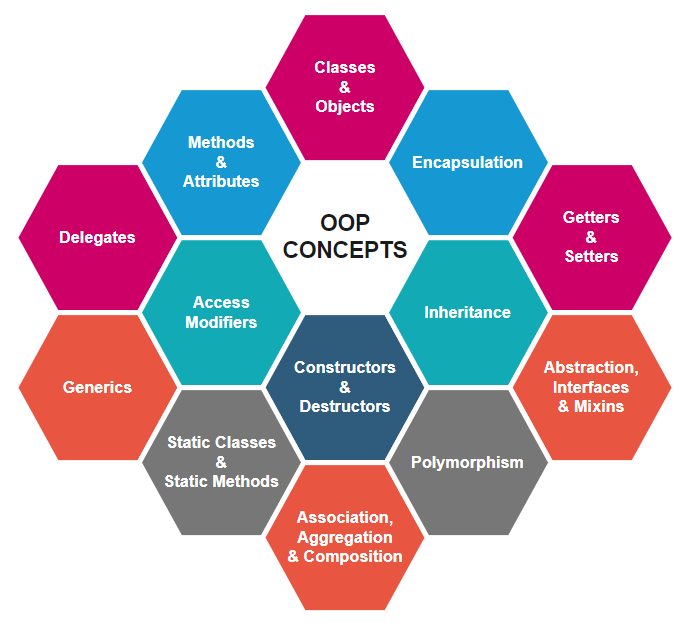Object-Oriented Programming (OOP) is a programming paradigm that organizes software design around objects, which contain both data (attributes) and behavior (methods). This approach enhances code reusability, scalability, and maintainability, making it an essential methodology for modern software development.
1. What is Object-Oriented Programming (OOP)?
- OOP is based on the concept of objects that encapsulate data and functions.
- It provides a structured way to build software applications by organizing code into reusable components.
- OOP simplifies complex development processes by enabling modular programming.

object-oriented-programming-guide
2. Key Principles of OOP
The four fundamental principles of OOP are:
- Encapsulation – Protects data by restricting access and grouping related functions together.
- Inheritance – Allows new classes to inherit properties and methods from existing classes.
- Polymorphism – Enables objects to respond differently to the same function call.
- Abstraction – Hides implementation details, allowing users to interact only with essential features.

OOP in Popular Programming
3. Benefits of Object-Oriented Programming
| Benefit | Description |
|---|---|
| Code Reusability | Enhances efficiency by allowing developers to reuse existing code. |
| Easier Maintenance | Structured code organization simplifies debugging and updates. |
| Flexibility | Programs can be easily modified and extended. |
| Security | Encapsulation protects data from unintended modifications. |
| Scalability | Suitable for large and complex applications. |
4. OOP in Popular Programming Languages
- Java: Fully supports OOP and is widely used in web, mobile, and enterprise applications.
- C++: Combines procedural and OOP paradigms, offering high performance and flexibility.
- Python: A versatile language that leverages OOP for software development, AI, and data science.
5. OOP in Large-Scale Software Development
- Web Development: Frameworks like Django (Python) and Spring (Java) use OOP principles for efficient web application development.
- Game Development: Game engines like Unity and Unreal Engine rely on OOP for object management.
- Enterprise Applications: Large-scale business solutions use OOP to enhance maintainability and modularity.
Conclusion
Object-Oriented Programming (OOP) is a powerful paradigm that improves code structure, maintainability, and scalability. By utilizing its core principles, developers can build robust and efficient software applications. Mastering OOP is crucial for anyone looking to excel in modern software development.





